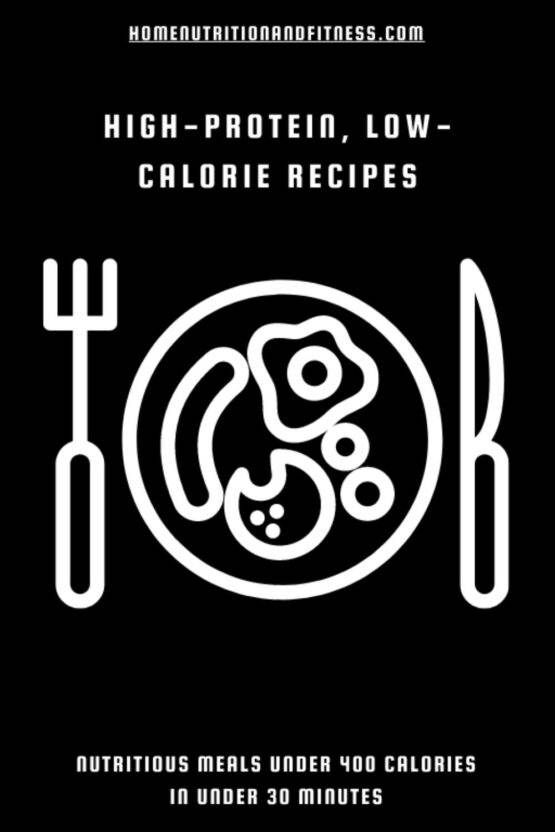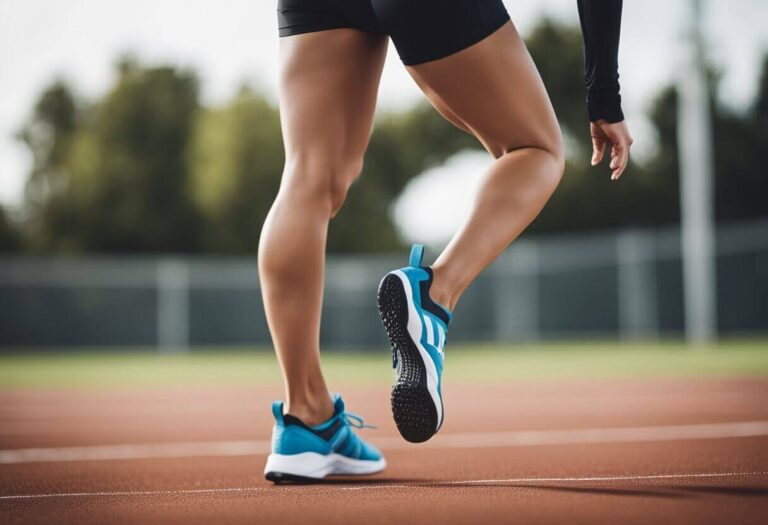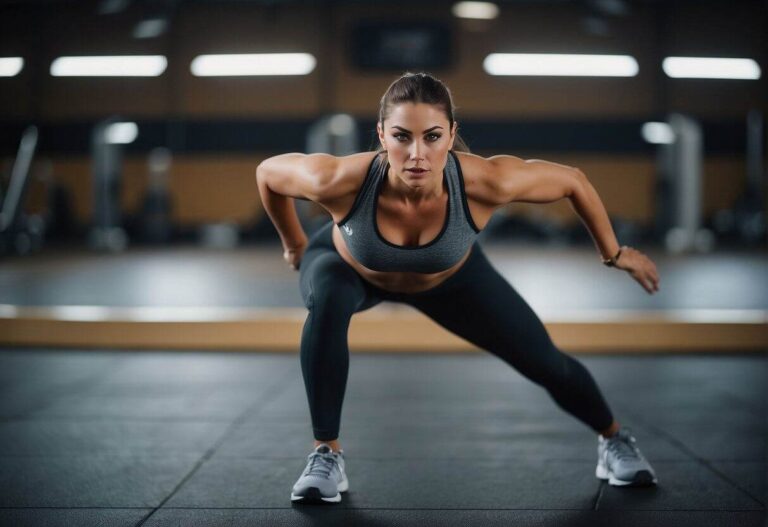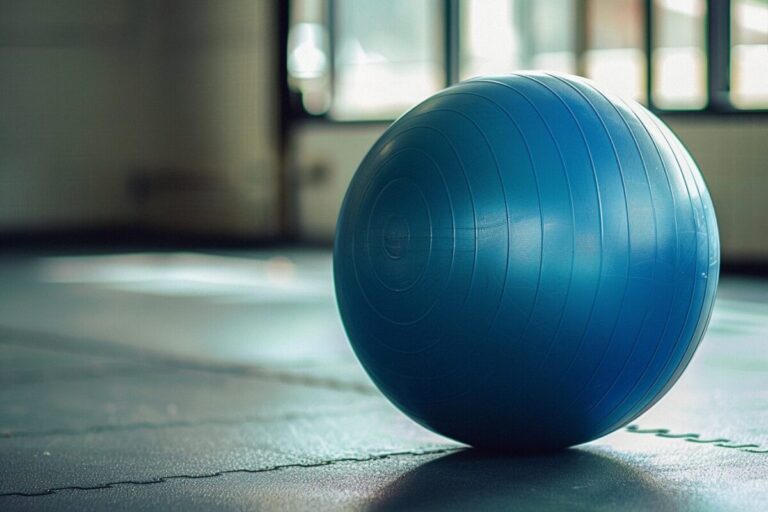Creatine is one of the most extensively studied sports supplements available in the market. It’s a natural compound that occurs mainly in animal products such as beef, chicken, and fish.
If you’re aiming to improve your gym performance and gain strength and muscle mass quickly, creatine is probably the safest and simplest way to do it.
Keep reading to find the answers to the questions that YOU and others have been asking about creatine. If there are any questions you have that aren’t on this list then feel free to leave a message in the comments and I’ll update the article with your question and answer.
Are Creatine Gains Permanent?
Whether or not creatine gains are permanent depends on a few factors, including how long you take creatine, how much you take, and how you train.
Creatine is a naturally occurring substance that helps your muscles produce energy during high-intensity exercise.
When you take creatine supplements, your muscles can store more creatine, which means they can produce more energy and work harder for longer.
Research has shown that creatine supplementation can lead to significant increases in muscle mass and strength, especially in people who are new to resistance training.
However, most of these gains are made in the first few weeks of supplementation.
After a few weeks, your muscles become saturated with creatine, and the additional gains you make are mostly due to your training and diet.
If you stop taking creatine, your muscle creatine levels will gradually decline over the next few weeks. However, if you continue to train and eat a healthy diet, you should be able to maintain most of the muscle gains you made while taking creatine.
Here is a summary of what the research says about creatine gains:
- Creatine supplementation can lead to significant increases in muscle mass and strength, especially in people who are new to resistance training.
- Most of these gains are made in the first few weeks of supplementation.
- After a few weeks, your muscles become saturated with creatine, and the additional gains you make are mostly due to your training and diet.
- If you stop taking creatine, your muscle creatine levels will gradually decline over the next few weeks. However, if you continue to train and eat a healthy diet, you should be able to maintain most of the muscle gains you made while taking creatine.
Overall, creatine gains are not permanent in the sense that your muscle creatine levels will decline if you stop taking creatine. However, if you continue to train and eat a healthy diet, you should be able to maintain most of the muscle gains you made while taking creatine.
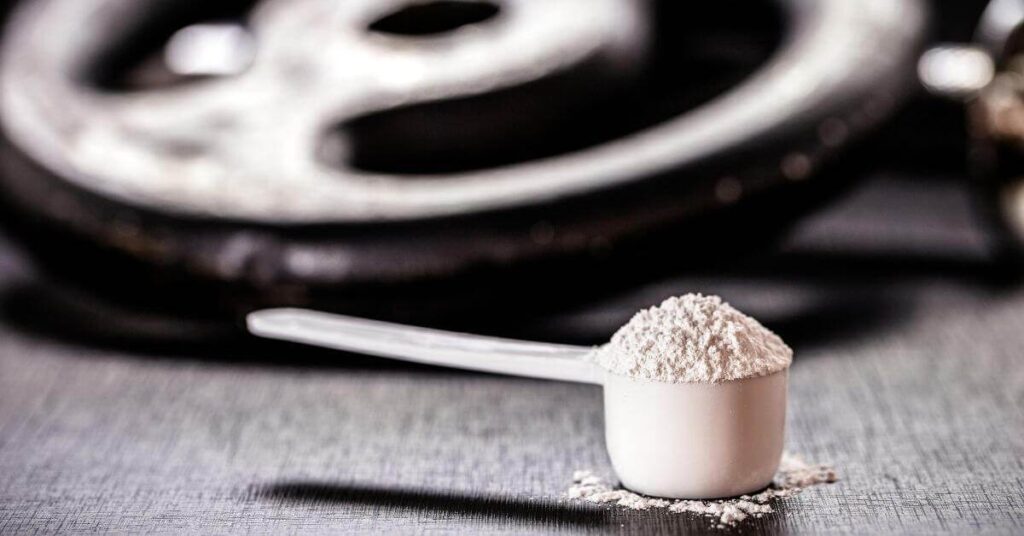
Can Creatine Cause Acne?
One study found that creatine use increased the levels of DHT (dihydrotestosterone) which is a hormone connected to acne. Despite the subjects having an elevated level of DHT, they were still within their normal limits.
No other creatine study has listed acne as a side effect. However, it is important to note that some people may experience acne outbreaks while taking creatine.
There are a few possible explanations for this:
- Increased sweating: Creatine can cause you to sweat more during exercise. This can lead to a buildup of bacteria on the skin, which can increase the risk of acne breakouts.
- Hormonal changes: Creatine can cause minor changes in hormone levels. These changes may trigger acne breakouts in some people, especially those who are already prone to acne.
- Stress: Creatine can also increase stress levels in some people. Stress is a known trigger for acne breakouts.
If you are concerned about developing acne while taking creatine, there are a few things you can do to reduce your risk:
- Shower immediately after working out.
- Wear loose-fitting clothing.
- Wash your face twice a day with a gentle cleanser.
- Use a moisturizer that is non-comedogenic (does not clog pores).
- Avoid touching your face throughout the day.
If you do develop acne while taking creatine, you may want to talk to your doctor or dermatologist about other treatment options.
Overall, the evidence suggests that creatine does not directly cause acne. However, it is important to be aware of the other factors that can contribute to acne outbreaks, and to take steps to reduce your risk.
Here are some additional tips for preventing acne:
- Eat a healthy diet low in processed foods and high in fruits, vegetables, and whole grains.
- Drink plenty of water.
- Get enough sleep.
- Manage stress levels.
- Avoid using harsh soaps and cleansers on your skin.
- Remove your makeup before bed.
Because creatine is mainly used by people looking to build muscle mass and improve physical endurance and performance, it is very commonly confused with steroids. Anabolic steroids have been shown to cause acne. Creatine does not.
Can I Take Protein And Creatine Together?
Yes, you can take protein and creatine together. In fact, many people do, as both supplements are safe and effective for promoting muscle growth and recovery.
Protein is essential for muscle repair and growth. It provides the amino acids that your muscles need to build new muscle tissue.
Creatine is a natural substance that helps your muscles produce energy during high-intensity exercise. It can help you to lift heavier weights and perform more reps, which can lead to increased muscle gains.
There is no evidence to suggest that taking protein and creatine together has any negative effects. In fact, some research has shown that taking creatine and protein together may be more effective for promoting muscle growth than taking either supplement alone.
For example, one study found that people who took creatine and protein together gained more muscle mass and strength than people who only took protein. Another study found that people who took creatine and protein together were able to lift heavier weights and perform more reps than people who only took protein.
If you are looking to maximize your muscle gains, taking protein and creatine together is a good option. However, it is important to note that both protein and creatine are only effective if you are also training regularly.
Do I Need Creatine If I Take Protein?
Whether or not you need creatine if you take protein depends on your individual goals. If you are looking to maximize your muscle gains, taking creatine and protein together is a good option. However, if you are not looking to maximize your muscle gains, or if you have any concerns about taking creatine, you may not need to take it.
Creatine is not essential for muscle growth, but it can help you gain muscle mass and strength more quickly. If you are training regularly and eating a healthy diet, you should be able to gain muscle mass and strength without taking creatine. However, if you are not seeing the results you want, you may want to try taking creatine to see if it helps.

Can You Lose Fat On Creatine?
Yes, you can lose fat on creatine. Creatine is not a fat burner, but it can help you to lose fat by increasing your muscle mass and strength.
When you have more muscle mass, you burn more calories at rest. This is because muscle tissue is more metabolically active than fat tissue. In other words, muscle tissue requires more energy to maintain itself than fat tissue.
Additionally, creatine can help you to lift heavier weights and perform more reps during workouts. This can lead to increased calorie burn and muscle growth.
One study found that people who took creatine lost more fat and gained more muscle than people who did not take creatine. Another study found that people who took creatine were able to burn more calories at rest than people who did not take creatine.
Overall, the research suggests that creatine can help you to lose fat by increasing your muscle mass and strength. However, it is important to note that creatine is not a magic bullet. You still need to follow a healthy diet and exercise regularly to see results.
Is Creatine Good For Fat Loss?
Creatine is not specifically good for fat loss, but it can help you to lose fat by increasing your muscle mass and strength.
As mentioned above, muscle tissue is more metabolically active than fat tissue. This means that people with more muscle mass burn more calories at rest. Additionally, creatine can help you to lift heavier weights and perform more reps during workouts, which can lead to increased calorie burn and muscle growth.
However, it is important to note that creatine is not a magic bullet. You still need to follow a healthy diet and exercise regularly to see results.
If you are looking to lose fat, creatine may be a helpful supplement to add to your routine.
Does Creatine Actually Build Muscle Faster?
Yes, creatine can help you build muscle faster. Creatine is a natural substance that helps your muscles produce energy during high-intensity exercise. When you take creatine supplements, your muscles can store more creatine, which means they can produce more energy and work harder for longer.
Research has shown that creatine supplementation can lead to significant increases in muscle mass and strength, especially in people who are new to resistance training. However, most of these gains are made in the first few weeks of supplementation.
After a few weeks, your muscles become saturated with creatine, and the additional gains you make are mostly due to your training and diet.
If you stop taking creatine, your muscle creatine levels will gradually decline over the next few weeks. However, if you continue to train and eat a healthy diet, you should be able to maintain most of the muscle gains you made while taking creatine.
Does Creatine Increase Muscle Size?
Yes, creatine can increase muscle size. Creatine can help you to build muscle faster by increasing your muscle mass and strength.
When you have more muscle mass, you burn more calories at rest. This is because muscle tissue is more metabolically active than fat tissue. In other words, muscle tissue requires more energy to maintain itself than fat tissue.
Additionally, creatine can help you to lift heavier weights and perform more reps during workouts. This can lead to increased calorie burn and muscle growth.
Overall, the research suggests that creatine can help you to build muscle faster and increase muscle size. However, it is important to note that creatine is not a magic bullet. You still need to follow a healthy diet and exercise regularly to see results.
Here are some tips for maximizing your muscle gains with creatine:
- Take creatine with a meal or snack that contains carbohydrates. This will help to increase creatine absorption.
- Take creatine after your workout. This will help to replenish your muscle creatine stores.
- Drink plenty of water throughout the day. Creatine can cause water retention, so it is important to stay hydrated.
- Eat a healthy diet that is high in protein and complex carbohydrates.
- Get enough sleep. Sleep is essential for muscle growth and recovery.
If you are looking to build muscle faster and increase muscle size, creatine may be a helpful supplement to add to your routine.

Does Creatine Affect Arousal?
There is no scientific evidence to suggest that creatine affects arousal. Creatine is a natural substance that helps your muscles produce energy during high-intensity exercise. It is not a hormonal supplement and does not have any direct effect on sexual function.
However, some people may experience increased arousal while taking creatine. This is likely due to the increased muscle mass and strength that creatine can help to build. When you have more muscle mass and strength, you may feel more confident and attractive, which can lead to increased arousal.
Additionally, creatine can help to improve your overall fitness and performance. This can lead to increased energy levels and a better sense of well-being, which can also contribute to increased arousal.
Overall, creatine does not directly affect arousal, but it can have some indirect effects. If you are experiencing increased arousal while taking creatine, it is likely due to an increase in muscle mass and strength, improved fitness and performance, or a combination of these factors.
Does Creatine Affect Hair Loss?
There is no definitive answer to the question of whether creatine affects hair loss.
Some studies have shown that creatine supplementation may lead to increased levels of dihydrotestosterone (DHT), a hormone that can contribute to hair loss. However, other studies have shown no link between creatine supplementation and hair loss.
It is important to note that DHT is not the only factor that contributes to hair loss. Genetics, age, stress, and certain medical conditions can also play a role.
If you are concerned about hair loss, it is important to talk to your doctor. They can help you to determine the underlying cause of your hair loss and recommend appropriate treatment options.
Here are some tips for preventing hair loss:
- Eat a healthy diet that is rich in protein, fruits, and vegetables.
- Avoid smoking and excessive alcohol consumption.
- Manage stress levels.
- Get enough sleep.
- Use mild shampoos and conditioners.
- Avoid over-styling your hair.
You may want to consider this hair regrowth supplement if you are experiencing hair loss problems.
VIDEO: Does Creatine Cause Hair Loss?
Does Creatine Affect Sleep?
There is some evidence to suggest that creatine may affect sleep in both positive and negative ways.
On the positive side, creatine may help to improve sleep quality and reduce daytime fatigue. This is likely due to the fact that creatine helps to increase energy levels and improve muscle function. Additionally, creatine may help to reduce stress levels, which can also lead to improved sleep.
However, on the negative side, creatine may also disrupt sleep in some people. This is because creatine can increase water retention, which can lead to frequent urination during the night. Additionally, creatine may increase body temperature, which can also make it difficult to fall asleep and stay asleep.
Here are some tips for improving sleep quality:
- Establish a regular sleep schedule and stick to it as much as possible, even on weekends.
- Create a relaxing bedtime routine.
- Make sure your bedroom is dark, quiet, and cool.
- Avoid caffeine and alcohol before bed.
- Get regular exercise, but avoid exercising too close to bedtime.
- See a doctor if you have chronic insomnia.
It is also worth considering the effects of other supplements on your sleep. For example, pre-workout can prevent you from getting a good night’s sleep if taken too late in the day.
Does Creatine Affect Sperm?
The research on the relationship between creatine supplementation and sperm health is mixed. Some studies have shown that creatine supplementation may improve sperm quality, while others have shown no effect or even a negative effect.
One study found that creatine supplementation increased sperm concentration, motility, and morphology in healthy men. It also found that creatine supplementation improved sperm quality in men with infertility.
However, other studies have shown no effect of creatine supplementation on sperm quality in healthy men.
It is important to note that the studies on creatine supplementation and sperm health are generally small and of low quality. More research is needed to confirm the effects of creatine supplementation on sperm health.
Here are some tips for improving sperm health:
- Eat a healthy diet that is rich in fruits, vegetables, and whole grains.
- Avoid smoking and excessive alcohol consumption.
- Manage stress levels.
- Get enough sleep.
- Maintain a healthy weight.
- Keep your testicles cool.
If you are trying to conceive, it is important to talk to your doctor about the best ways to improve your fertility.
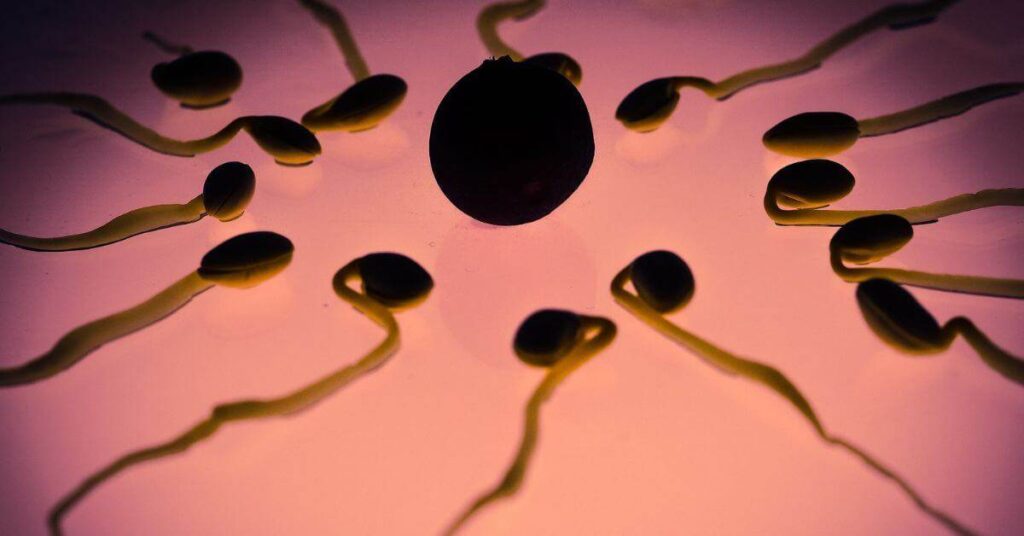
Does Creatine Affect Testosterone?
The research on the relationship between creatine supplementation and testosterone levels is mixed. Some studies have shown that creatine supplementation may slightly increase testosterone levels, while others have shown no effect.
Examine.com provides an analysis of creatine-testosterone studies which is summarised below:
It has been suggested that creatine may increase testosterone levels. The results from three randomized controlled trials (RCTs) displayed an increase in testosterone levels that were statistically significant but relatively minor.
One of the studies showed an increase in dihydrotestosterone (DHT), a highly active androgen that is converted from testosterone. Despite the increase in DHT levels, all participants in these studies remained within the normal range of testosterone levels.
On the other hand, ten other randomized controlled trials (RCTs) involving a total of 218 participants found no evidence of a connection between creatine supplementation and testosterone levels. These studies, which included active, healthy young males, reported no significant changes in testosterone levels with creatine supplementation.
The studies that showed a possible increase in testosterone or DHT lasted for short periods, between 1 and 3 weeks, while longer studies, up to 12 weeks, did not show any increase. Although longer studies may hold more practical significance, their results did not support the claim that creatine increases testosterone levels.
Overall, the evidence remains inconclusive, with some studies suggesting a minor effect on testosterone, while a larger number of studies found no such effect.
There are no studies on individuals with abnormally low testosterone levels, and no studies on females. However, it is hypothesized that creatine supplementation does not significantly affect female testosterone levels based on the largely negative results from male studies.
Does Creatine Boost Metabolism?
Yes, creatine can boost metabolism. Creatine is a natural substance that helps your muscles produce energy during high-intensity exercise. When you take creatine supplements, your muscles can store more creatine, which means they can produce more energy and work harder for longer.
Research has shown that creatine supplementation can lead to significant increases in muscle mass and strength. Muscle tissue is more metabolically active than fat tissue, which means that it burns more calories at rest. Additionally, creatine can help you perform more reps during workouts, which can lead to increased calorie burn and muscle growth.
Overall, the research suggests that creatine can boost metabolism by increasing muscle mass and strength, and by improving exercise performance.
Here is a summary of how creatine can boost metabolism:
- Increases muscle mass: Muscle tissue is more metabolically active than fat tissue, which means that it burns more calories at rest.
- Improves exercise performance: Creatine can help you to lift heavier weights and perform more reps during workouts, which can lead to increased calorie burn and muscle growth.
- Increases energy production: Creatine helps your muscles produce more energy during high-intensity exercise, which can lead to increased calorie burn.
If you are looking to boost your metabolism, creatine may be a helpful supplement to add to your routine. However, it is important to note that creatine is not a magic bullet. You still need to follow a healthy diet and exercise regularly to see results.
Does Creatine Lower Belly Fat?
There is no scientific evidence to suggest that creatine directly lowers belly fat. Creatine is a natural substance that helps your muscles produce energy during high-intensity exercise. It is not a fat burner, and it does not have any direct effect on belly fat.
However, creatine can help you to lower belly fat indirectly by increasing your muscle mass and strength. When you have more muscle mass, you burn more calories at rest. This is because muscle tissue is more metabolically active than fat tissue. In other words, muscle tissue requires more energy to maintain itself than fat tissue.
Additionally, creatine can help you to lift heavier weights and perform more reps during workouts. This can lead to increased calorie burn and muscle growth.
When you build muscle, your body also burns fat to provide energy for the muscle-building process. So, while creatine does not directly lower belly fat, it can help you to lower belly fat indirectly by increasing your muscle mass and strength.
It is important to note that creatine is not a magic bullet for weight loss. You still need to follow a healthy diet and exercise regularly to see results.
Here are some tips for losing belly fat:
- Eat a healthy diet that is low in processed foods and high in fruits, vegetables, and whole grains.
- Get regular exercise, including strength training and cardio.
- Get enough sleep.
- Manage stress levels.
Does Creatine Make You Big Or Lean?
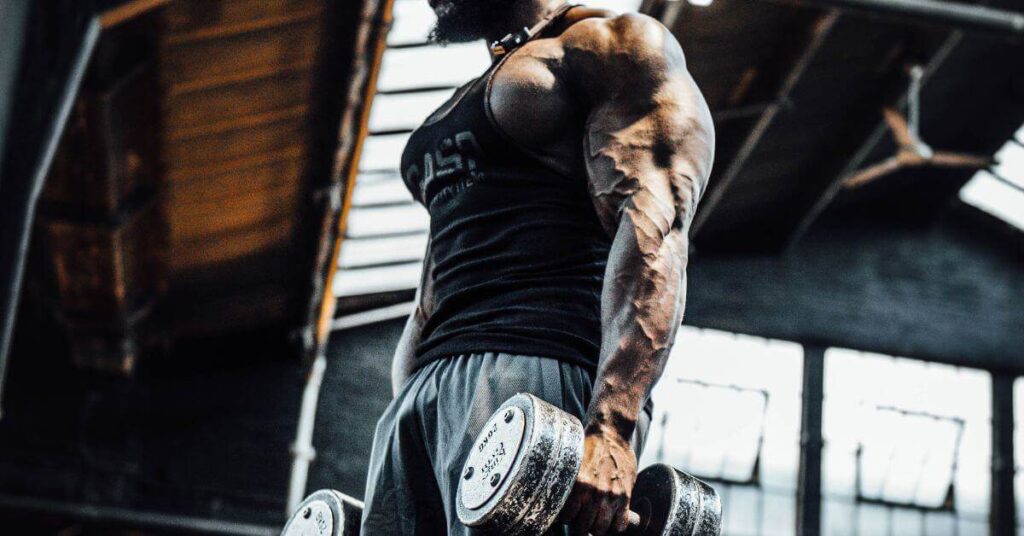
Creatine can make you both bigger and leaner.
Creatine is a natural substance that helps your muscles produce energy during high-intensity exercise. When you take creatine supplements, your muscles can store more creatine, which means they can produce more energy and work harder for longer.
Research has shown that creatine supplementation can lead to significant increases in muscle mass and strength. However, most of these gains are made in the first few weeks of supplementation. After a few weeks, your muscles become saturated with creatine, and the additional gains you make are mostly due to your training and diet.
If you continue to train and eat a healthy diet, you should be able to maintain most of the muscle gains you made while taking creatine. Additionally, creatine can help you to burn more calories at rest by increasing your muscle mass. This means that you can lose fat and become leaner while still maintaining your muscle mass.
Does creatine make you stronger or just bigger?
Creatine can make you both stronger and bigger. Creatine helps your muscles produce more energy during high-intensity exercise, which means you can lift heavier weights and perform more reps. This can lead to increased muscle mass and strength.
However, it is important to note that creatine is not a magic bullet. You still need to follow a progressive resistance training program and eat a healthy diet to see results.
Overall, creatine is a safe and effective supplement for promoting muscle growth and strength. It can also help you to burn more calories at rest and become leaner. However, it is important to note that creatine is not a magic bullet. You still need to follow a healthy diet and exercise regularly to see results.
How Fast Will Creatine Make You Bigger?
Creatine can make you bigger relatively quickly, but the exact rate of increase in muscle mass will vary depending on a number of factors, including your genetics, training program, diet, and overall health.
In general, most people start to see noticeable gains in muscle mass within the first few weeks of taking creatine. However, the most significant gains are typically made in the first 6-8 weeks. After that, the rate of increase in muscle mass will slow down, but you can still expect to see gains over time.
It is important to note that creatine is not a magic bullet for muscle growth. You still need to train hard and eat a healthy diet to see results. However, creatine can give you a boost and help you to reach your goals faster.
Here are some tips for maximizing your muscle gains with creatine:
- Take creatine with a meal or snack that contains carbohydrates. This will help to increase creatine absorption.
- Take creatine after your workout. This will help to replenish your muscle creatine stores.
- Drink plenty of water throughout the day. Creatine can cause water retention, so it is important to stay hydrated.
- Eat a healthy diet that is high in protein and complex carbohydrates.
- Get enough sleep. Sleep is essential for muscle growth and recovery.
If you are looking to build muscle quickly, creatine can be a helpful supplement to add to your routine. However, it is important to remember that creatine is not a replacement for hard work and a healthy diet.
Here is a summary of how long it takes for creatine to work:
- Most people start to see noticeable gains in muscle mass within the first few weeks of taking creatine.
- The most significant gains are typically made in the first 6-8 weeks.
- After that, the rate of increase in muscle mass will slow down, but you can still expect to see gains over time.
It is important to note that the individual results will vary depending on the factors mentioned above.
How Long After Creatine Can I Drink Coffee?
There is no specific amount of time that you need to wait after taking creatine before drinking coffee. Creatine and coffee are both safe and well-tolerated by most people. However, some people may experience stomach upset or other digestive problems if they take creatine and coffee too close together.
If you are concerned about potential interactions between creatine and coffee, you may want to wait at least 30 minutes after taking creatine before drinking coffee. This will give your body time to absorb the creatine and reduce the risk of any digestive problems.
It is also important to note that caffeine can dehydrate you. Creatine can also cause water retention. Therefore, it is important to drink plenty of fluids throughout the day, especially if you are taking creatine and drinking coffee.
Here are some tips for avoiding digestive problems when taking creatine and coffee:
- Take creatine with a meal or snack that contains carbohydrates. This will help to reduce stomach upset.
- Drink plenty of water throughout the day.
- If you experience any digestive problems, try waiting longer between taking creatine and drinking coffee.
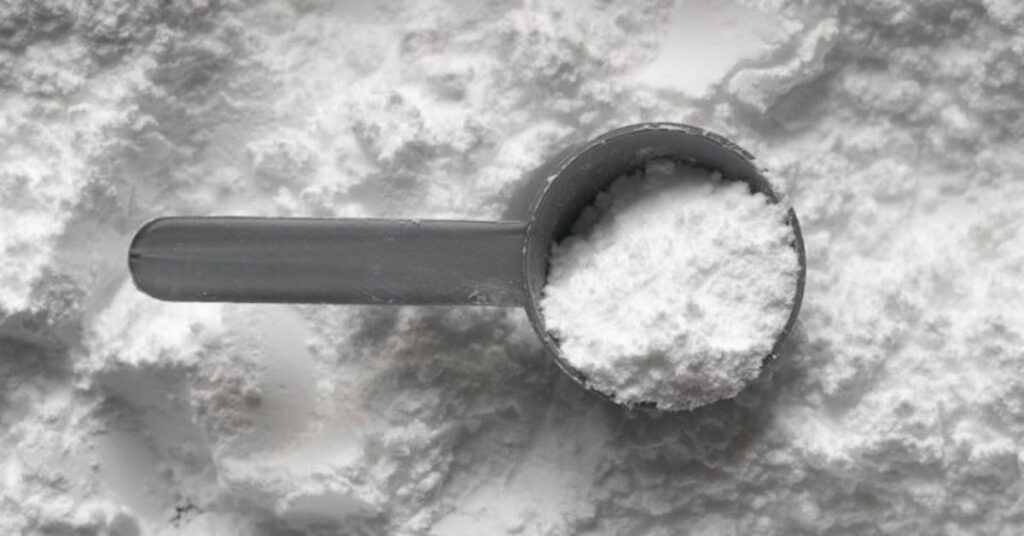
How Much Creatine Per Day?
The recommended dosage of creatine for adults is 3-5 grams per day. This can be taken as a single dose or divided into smaller doses throughout the day.
If you are new to creatine, you may want to start with a lower dose, such as 2-3 grams per day, and gradually increase your dosage to 3-5 grams per day as tolerated.
It is also important to note that creatine can cause water retention, so it is important to drink plenty of fluids throughout the day, especially if you are taking creatine.
Here are some tips for taking creatine:
- Take creatine with a meal or snack that contains carbohydrates. This will help to increase creatine absorption.
- Take creatine after your workout. This will help to replenish your muscle creatine stores.
- Drink plenty of water throughout the day. Creatine can cause water retention, so it is important to stay hydrated.
- Eat a healthy diet that is high in protein and complex carbohydrates.
- Get enough sleep. Sleep is essential for muscle growth and recovery.
How Much Water Should I Drink With Creatine?
The amount of water you should drink with creatine depends on your individual needs. However, a good general rule of thumb is to drink at least 8 ounces of water with each dose of creatine. This will help to ensure that the creatine is properly absorbed and to reduce the risk of any side effects, such as water retention.
If you are taking more than one dose of creatine per day, you may want to drink even more water. You can also try drinking more water throughout the day to stay hydrated.
It is important to listen to your body and drink as much water as you need to feel your best. If you are feeling thirsty or if your urine is dark yellow, you may need to drink more water.
Here are some tips for staying hydrated:
- Drink water throughout the day, even if you don’t feel thirsty.
- Carry a water bottle with you so you can drink water on the go.
- Drink water before, during, and after exercise.
- Eat fruits and vegetables, which are high in water content.
- Avoid sugary drinks, such as soda and juice, which can dehydrate you.
How Often Should You Take Creatine?
The most common way to take creatine is to take a loading dose of 20-25 grams per day for 5-7 days, followed by a maintenance dose of 3-5 grams per day. However, there is some evidence that taking 3-5 grams of creatine per day without a loading dose is just as effective in increasing muscle creatine stores.
If you are new to creatine, it is generally recommended to start with a lower dose, such as 2-3 grams per day, and gradually increase your dosage to 3-5 grams per day as tolerated.
You can take creatine once per day, or you can divide it into smaller doses throughout the day. There is no evidence that taking creatine multiple times per day is more effective than taking it once per day.
It is also important to note that creatine can cause water retention, so it is important to drink plenty of fluids throughout the day, especially if you are taking creatine.
Here are some tips for taking creatine:
- Take creatine with a meal or snack that contains carbohydrates. This will help to increase creatine absorption.
- Take creatine after your workout. This will help to replenish your muscle creatine stores.
- Drink plenty of water throughout the day. Creatine can cause water retention, so it is important to stay hydrated.
- Eat a healthy diet that is high in protein and complex carbohydrates.
- Get enough sleep. Sleep is essential for muscle growth and recovery.
VIDEO: What Happens If You Load Creatine For 7 Days?
Is Creatine A Pre Workout?
Creatine is not a pre-workout, but it is a popular supplement that is often taken before workouts. Creatine is a natural substance that helps your muscles produce energy during high-intensity exercise. It is not a stimulant, and it does not have any direct effect on energy levels or alertness.
Pre-workout supplements are typically a blend of ingredients that are designed to increase energy levels, alertness, and performance before a workout. They often contain stimulants, such as caffeine, as well as other ingredients such as creatine, beta-alanine, and L-citrulline.
Creatine vs. pre-workout
Creatine and pre-workout supplements have different purposes and effects. Creatine is a muscle-building supplement that helps your muscles produce more energy during high-intensity exercise. Pre-workout supplements are designed to increase energy levels, alertness, and performance before a workout.
Which is better?
Whether creatine or pre-workout is better for you depends on your individual needs and goals. If you are looking to build muscle, creatine is the better choice. If you are looking to increase energy levels, alertness, and performance before a workout, a pre-workout supplement may be a better choice.
However, it is important to note that creatine and pre-workout supplements can be taken together. In fact, many people take creatine and pre-workout supplements before workouts to get the best of both worlds.
How To Take Creatine For Beginners
Here is a guide on how to take creatine for beginners:
- Start with a lower dose. If you are new to creatine, it is generally recommended to start with a lower dose, such as 2-3 grams per day, and gradually increase your dosage to 3-5 grams per day as tolerated. This will help to reduce the risk of any side effects, such as stomach upset.
- Take creatine with a meal or snack that contains carbohydrates. This will help to increase creatine absorption.
- Take creatine after your workout. This will help to replenish your muscle creatine stores.
- Drink plenty of water throughout the day. Creatine can cause water retention, so it is important to stay hydrated.
- Eat a healthy diet that is high in protein and complex carbohydrates. This will help to support muscle growth and recovery.
- Get enough sleep. Sleep is essential for muscle growth and recovery.
Loading phase
Some people choose to do a loading phase when they first start taking creatine. This involves taking a higher dose of creatine, such as 20-25 grams per day, for 5-7 days. This can help to saturate your muscle creatine stores more quickly. However, there is some evidence that taking 3-5 grams of creatine per day without a loading dose is just as effective in increasing muscle creatine stores.
Maintenance phase
Once you have loaded your muscle creatine stores, you can switch to a maintenance dose of 3-5 grams per day. This is the amount of creatine that you need to take to maintain your muscle creatine stores at a high level.
How long to take creatine
You can take creatine for as long as you want. There is no evidence that taking creatine for long periods of time is harmful. However, it is important to note that creatine is not a magic bullet for muscle growth. You still need to train hard and eat a healthy diet to see results.
VIDEO: Beginner Takes Creatine for 30 Days
Is Creatine Better As A Pill Or Powder?
Creatine pills and powder are both effective ways to supplement with creatine. However, there are some key differences between the two forms.
Creatine pills
- More convenient to take, especially if you are on the go.
- Easier to measure out the correct dosage.
- May be more expensive than powder.
- May cause stomach upset in some people.
Creatine powder
- More affordable than pills.
- Easier to mix with other supplements or drinks.
- May be absorbed more quickly than pills.
- More difficult to measure out the correct dosage.
- Less convenient to take, especially if you are on the go.
Which is better?
Whether creatine pills or powder is better for you depends on your individual preferences and needs. If convenience is important to you, creatine pills may be the better choice. If you are on a budget, creatine powder may be the better choice.
It is also important to note that creatine powder can be mixed with other supplements or drinks, such as protein shakes or pre-workout drinks. This can be a convenient way to take multiple supplements at once.
Ultimately, the best way to decide which form of creatine is right for you is to try both and see which one you prefer.
Here are some additional tips for taking creatine:
- Take creatine with a meal or snack that contains carbohydrates. This will help to increase creatine absorption.
- Take creatine after your workout. This will help to replenish your muscle creatine stores.
- Drink plenty of water throughout the day. Creatine can cause water retention, so it is important to stay hydrated.
- Eat a healthy diet that is high in protein and complex carbohydrates. This will help to support muscle growth and recovery.
- Get enough sleep. Sleep is essential for muscle growth and recovery.
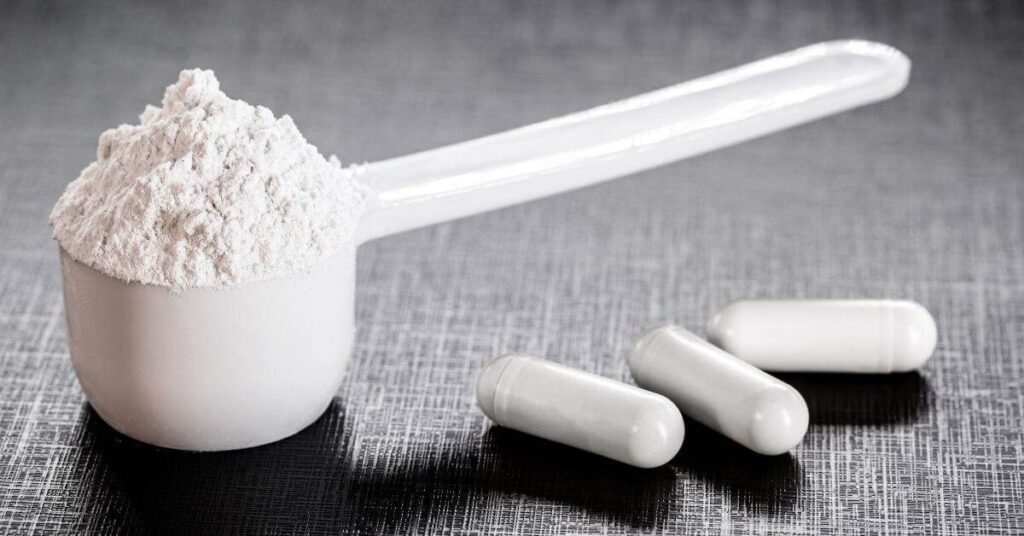
Is Creatine Better Than Protein?
Creatine and protein are both important supplements for muscle growth and recovery. However, they have different purposes and effects.
Creatine is a natural substance that helps your muscles produce energy during high-intensity exercise. It is not a stimulant, and it does not have any direct effect on muscle growth. However, creatine can help you to lift heavier weights and perform more reps during workouts, which can lead to increased muscle growth over time.
Protein is the building block of muscle tissue. When you consume protein, your body breaks it down into amino acids, which are then used to repair and rebuild muscle tissue. Protein is essential for muscle growth and recovery, and it is especially important to consume enough protein after workouts.
Which is better?
Whether creatine or protein is better for you depends on your individual needs and goals. If you are looking to build muscle, both creatine and protein are important supplements. Creatine can help you to lift heavier weights and perform more reps during workouts, while protein is essential for muscle growth and recovery.
If you are on a tight budget, protein may be the better choice, as it is more essential for muscle growth and recovery. However, if you can afford it, creatine is a great supplement to add to your routine.
It is also important to note that creatine and protein can be taken together. In fact, many people take creatine and protein supplements after workouts to get the best of both worlds.
Here are some additional tips for building muscle:
- Eat a healthy diet that is high in protein and complex carbohydrates.
- Get enough sleep. Sleep is essential for muscle growth and recovery.
- Train regularly. Focus on compound exercises that work multiple muscle groups at once.
- Increase the weight and/or intensity of your workouts over time.
- Listen to your body and take rest days when needed.
If you are unsure what supplements are right for you, or if you have any other questions about muscle building, talk to a registered dietitian.
Is Creatine Hard On The Liver?
Creatine is not generally considered to be hard on the liver. In fact, there is some evidence to suggest that creatine may actually protect the liver from damage.
One study found that creatine supplementation reduced liver damage in rats that were exposed to a toxic substance. Another study found that creatine supplementation improved liver function in patients with non-alcoholic fatty liver disease.
However, it is important to note that these studies were conducted in animals or humans with pre-existing liver conditions. More research is needed to determine the effects of creatine supplementation on healthy individuals.
Here are some additional tips for maintaining good liver health:
- Eat a healthy diet that is low in processed foods and high in fruits, vegetables, and whole grains.
- Avoid excessive alcohol consumption.
- Maintain a healthy weight.
- Get regular exercise.
- Get enough sleep.
If you have any liver health concerns, talk to your doctor. They can monitor your liver health and recommend appropriate treatment options.
Is Creatine Legal In The UK?
Yes, creatine is legal in the UK. It is not a banned substance under the World Anti-Doping Agency (WADA) Code, and it is not regulated by the UK government.
Creatine is a natural substance that is found in muscle cells. It helps your muscles produce energy during high-intensity exercise. Creatine is a popular supplement among athletes and bodybuilders, as it can help to improve muscle growth and performance.
Creatine is generally considered to be safe for most people.
Here are some tips for taking creatine safely:
- Start with a lower dose and gradually increase your dosage as tolerated.
- Take creatine with a meal or snack that contains carbohydrates.
- Drink plenty of water throughout the day.
- Eat a healthy diet that is high in protein and complex carbohydrates.
- Get enough sleep.
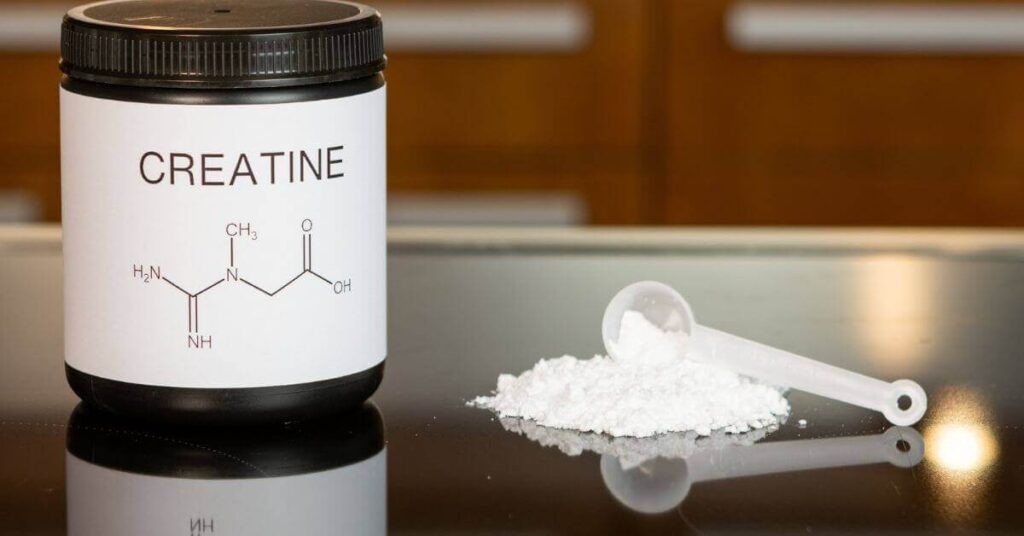
Is It Bad To Drink Alcohol With Creatine?
Creatine and alcohol can be mixed, but it is not recommended, especially if you are taking creatine to improve your athletic performance or build muscle.
Alcohol is a diuretic, which means it causes your body to lose fluids. This can lead to dehydration, which can impair muscle function and performance. Additionally, alcohol can interfere with the body’s ability to produce and store creatine.
A recent study on mice suggests that mixing alcohol and creatine may actually amplify the negative effects of alcohol on the liver. The study found that mice that were given both alcohol and creatine had higher levels of liver damage than mice that were given alcohol alone.
If you do choose to drink alcohol while taking creatine, be sure to drink plenty of water to stay hydrated. It is also best to avoid drinking alcohol on days that you exercise.
Here are some tips for taking creatine:
- Take creatine with carbohydrates and protein to help your muscles absorb it better.
- Avoid taking creatine with alcohol or caffeine, as they can dehydrate you.
- Drink plenty of water throughout the day.
- If you have any health concerns, talk to your doctor before taking creatine.
Overall, it is best to avoid drinking alcohol while taking creatine, especially if you are serious about improving your athletic performance or building muscle.
Is It Good Or Bad To Take Creatine?
Creatine is a natural substance found in muscle cells that helps your body’s muscles produce energy. It is also a popular sports supplement used to improve athletic performance and build muscle.
Benefits of creatine:
- Increased muscle strength and power
- Improved athletic performance
- Increased muscle mass
- Reduced muscle fatigue
- Improved brain health
Side effects of creatine:
- Stomach upset
- Muscle cramps
- Dehydration
- Weight gain
- Kidney problems (in people with pre-existing kidney conditions)
Is it good or bad to take creatine?
Whether or not it is good or bad to take creatine depends on your individual circumstances and goals. If you are a healthy person looking to improve your athletic performance or build muscle, creatine can be a safe and effective supplement.
Here are some things to consider when deciding whether or not to take creatine:
- Your health status. If you have any health conditions, such as kidney disease, diabetes, or heart disease, talk to your doctor before taking creatine.
- Your goals. If you are looking to improve your athletic performance or build muscle, creatine can be a safe and effective supplement. However, if you are simply looking to lose weight or improve your overall health, creatine is not necessary.
- Your lifestyle. If you are dehydrated or eat a lot of processed foods, you may be more likely to experience side effects from creatine.
If you do decide to take creatine, be sure to follow the dosage instructions on the label. It is also important to drink plenty of water throughout the day to stay hydrated.
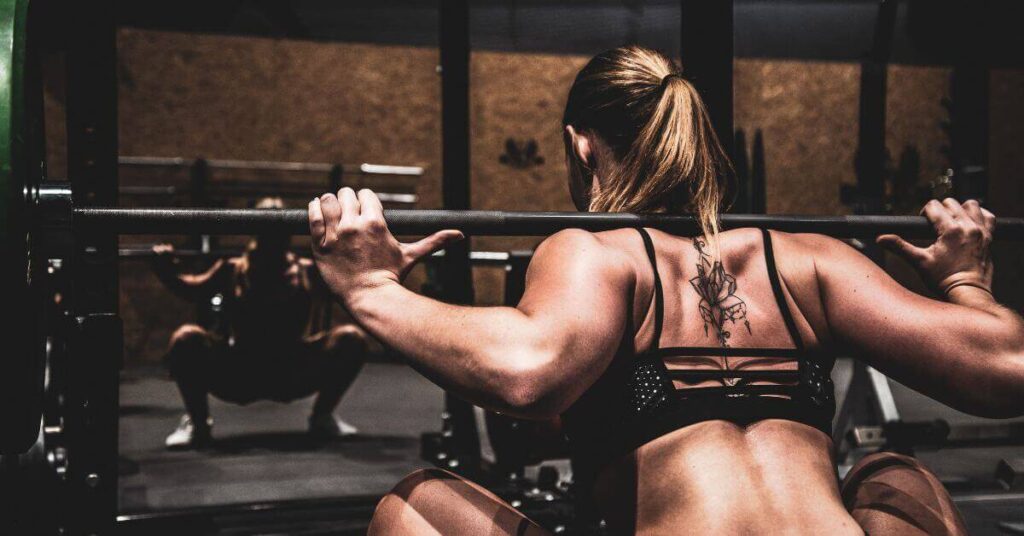
Is It OK To Take Creatine Everyday?
Yes, it is OK to take creatine every day. In fact, many athletes and bodybuilders take creatine every day to maintain their muscle mass and strength.
Creatine is a natural substance that is found in muscle cells. It helps your body’s muscles produce energy. Creatine supplements can help to increase muscle strength, power, and endurance. They can also help to reduce muscle fatigue and improve recovery after exercise.
Creatine is generally safe for most people to take, even over long periods of time.
The recommended dosage of creatine is 3-5 grams per day. You can take creatine at any time of day, but it is best to take it with food and carbohydrates. This will help your body to absorb the creatine better.
If you are new to taking creatine, you may want to start with a lower dose, such as 3 grams per day. You can then increase the dose to 5 grams per day if you do not experience any side effects.
Some people may experience side effects from creatine, such as stomach upset, muscle cramps, and dehydration. If you experience any side effects, reduce the dose or stop taking creatine altogether.
Here are some tips for taking creatine:
- Take creatine with carbohydrates and protein to help your muscles absorb it better.
- Avoid taking creatine with alcohol or caffeine, as they can dehydrate you.
- Drink plenty of water throughout the day.
Overall, it is OK to take creatine every day. Creatine is a safe and effective supplement for most people who are looking to improve their athletic performance or build muscle.
Should I Take Creatine Before Or After Workout?
Research suggests that the best time to take creatine is after a workout. This is because your muscles are more receptive to creatine after exercise. Additionally, taking creatine after a workout can help to replenish your muscle creatine stores and promote muscle recovery.
However, taking creatine before a workout can also have some benefits. Creatine can help to increase your muscle energy levels and improve your performance during exercise.
Ultimately, the best time to take creatine is the time that works best for you.
Here are some things to consider when deciding when to take creatine:
- Your workout schedule. If you work out in the morning, you may want to take creatine before your workout. If you work out in the evening, you may want to take creatine after your workout.
- Your goals. If you are looking to improve your athletic performance, you may want to take creatine before your workout. If you are looking to build muscle, you may want to take creatine after your workout.
- Your personal preference. Some people prefer to take creatine before their workout, while others prefer to take it after their workout. Experiment to see what works best for you.
No matter when you choose to take creatine, be sure to follow the dosage instructions on the label. It is also important to drink plenty of water throughout the day to stay hydrated.
Should Men Over 40 Take Creatine?
Yes, men over 40 can benefit from taking creatine. Creatine is a natural substance that helps your body’s muscles produce energy. It is also a popular sports supplement used to improve athletic performance and build muscle.
As men age, they naturally lose muscle mass and strength. This is known as sarcopenia. Creatine can help to reduce the loss of muscle mass and strength in older men. It can also help to improve physical performance and functional ability.
In addition, creatine has been shown to have other health benefits for older men, such as:
- Improved cognitive function
- Reduced risk of falls and fractures
- Improved insulin sensitivity
- Reduced risk of heart disease
Creatine is generally safe for most people to take, including older men.
The recommended dosage of creatine for older men is 3-5 grams per day. You can take creatine at any time of day, but it is best to take it with food and carbohydrates. This will help your body to absorb the creatine better.
If you are new to taking creatine, you may want to start with a lower dose, such as 3 grams per day. You can then increase the dose to 5 grams per day if you do not experience any side effects.
Some people may experience side effects from creatine, such as stomach upset, muscle cramps, and dehydration. If you experience any side effects, reduce the dose or stop taking creatine altogether.
Here are some tips for taking creatine:
- Take creatine with carbohydrates and protein to help your muscles absorb it better.
- Avoid taking creatine with alcohol or caffeine, as they can dehydrate you.
- Drink plenty of water throughout the day.
Overall, creatine is a safe and effective supplement for most older men who are looking to improve their muscle mass, strength, and physical performance.
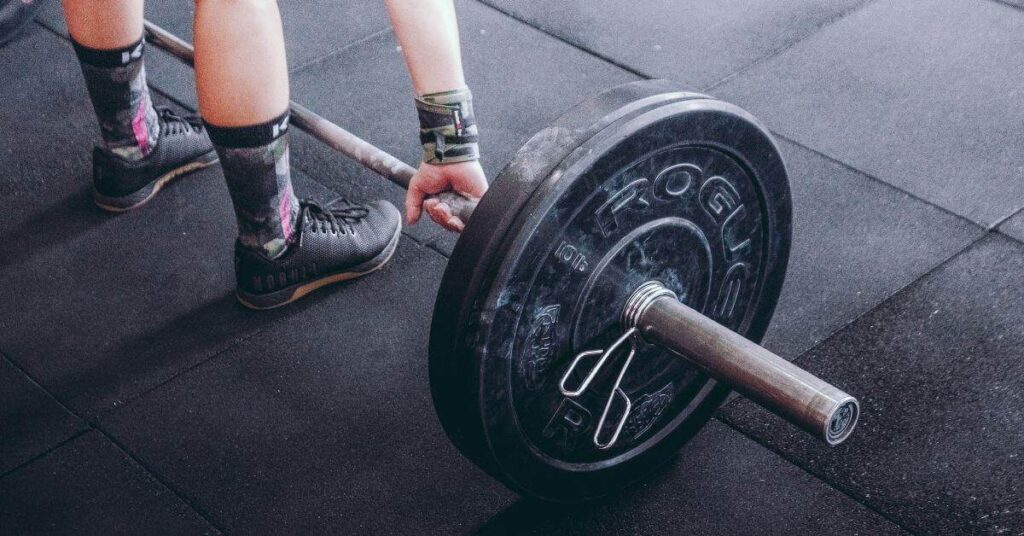
What Are The Pros And Cons Of Creatine?
Creatine is a natural substance found in muscle cells that helps your body’s muscles produce energy. It is also a popular sports supplement used to improve athletic performance and build muscle.
Pros of creatine:
- Increased muscle strength and power
- Improved athletic performance
- Increased muscle mass
- Reduced muscle fatigue
- Improved brain health
- May help reduce the loss of muscle mass and strength in older adults
Cons of creatine:
- Stomach upset
- Muscle cramps
- Dehydration
- Weight gain
- Kidney problems (in people with pre-existing kidney conditions)
It is important to note that the side effects of creatine are generally mild and go away on their own. However, if you experience any severe side effects, you should stop taking creatine and talk to your doctor.
Overall, creatine is a safe and effective supplement for most people who are looking to improve their athletic performance or build muscle.
Here are some additional things to consider when deciding whether or not to take creatine:
- Your health status. If you have any health conditions, such as kidney disease, diabetes, or heart disease, talk to your doctor before taking creatine.
- Your goals. If you are looking to improve your athletic performance or build muscle, creatine can be a safe and effective supplement. However, if you are simply looking to lose weight or improve your overall health, creatine is not necessary.
- Your lifestyle. If you are dehydrated or eat a lot of processed foods, you may be more likely to experience side effects from creatine.
If you do decide to take creatine, be sure to follow the dosage instructions on the label. It is also important to drink plenty of water throughout the day to stay hydrated.
What Does Creatine Do To The Body?
Creatine is a natural substance found in muscle cells. It helps your body’s muscles produce energy. Creatine is also a popular sports supplement used to improve athletic performance and build muscle.
When you take creatine, it is stored in your muscle cells as phosphocreatine. Phosphocreatine is a high-energy molecule that can be used to quickly produce energy during high-intensity exercise.
Creatine has a number of effects on the body, including:
- Increased muscle strength and power. Creatine helps to increase the amount of energy available to your muscles during high-intensity exercise. This can lead to increased muscle strength and power.
- Improved athletic performance. Creatine can help to improve athletic performance in a variety of sports, including sprinting, jumping, weightlifting, and cycling.
- Increased muscle mass. Creatine can help to increase muscle mass by increasing the amount of water that is stored in muscle cells.
- Reduced muscle fatigue. Creatine can help to reduce muscle fatigue by increasing the amount of energy available to your muscles during exercise.
- Improved brain health. Creatine has also been shown to improve brain health and cognitive function.
Creatine is generally safe for most people to take, even over long periods of time.
If you do decide to take creatine, be sure to follow the dosage instructions on the label. It is also important to drink plenty of water throughout the day to stay hydrated.
VIDEO: What Happens To Your Body After Taking Creatine For 30 Days?
What Happens If You Don’t Drink Enough Water While On Creatine?
Creatine is a natural substance found in muscle cells that helps your body’s muscles produce energy. It is also a popular sports supplement used to improve athletic performance and build muscle.
One of the side effects of creatine is dehydration. Creatine pulls water into your muscle cells, so if you don’t drink enough water, your body may not have enough fluids to function properly. This can lead to a number of problems, including:
- Fatigue
- Dizziness
- Headache
- Constipation
- Muscle cramps
- Kidney problems
In severe cases, dehydration can even be fatal.
It is important to drink plenty of water throughout the day, especially if you are taking creatine. The recommended amount of water for adults is 8 glasses per day, but you may need to drink more if you are exercising or living in a hot climate.
If you are experiencing any of the symptoms of dehydration, be sure to drink plenty of fluids and rest. You may also want to take an electrolyte supplement to help replenish your body’s fluids and electrolytes.
Here are some tips for staying hydrated while on creatine:
- Drink plenty of water throughout the day, even if you don’t feel thirsty.
- Avoid sugary drinks, such as soda and juice, as they can dehydrate you.
- Drink caffeine and alcohol in moderation, as they can also dehydrate you.
- Eat fruits and vegetables, which are high in water content.
- If you are exercising, be sure to drink fluids before, during, and after your workout.
If you have any concerns about dehydration, be sure to talk to your doctor.
What Happens If You Take Creatine And Don’t Workout?
If you take creatine and don’t work out, you may not experience any significant benefits. Creatine works by increasing the amount of phosphocreatine in your muscle cells. Phosphocreatine is a high-energy molecule that can be used to quickly produce energy during high-intensity exercise.
If you don’t work out, you are not using your muscles to their full potential, so you will not need the extra energy that creatine provides. As a result, you may not experience any significant benefits from taking creatine.
However, there are some potential benefits to taking creatine even if you don’t work out. For example, creatine may help to improve cognitive function, reduce the risk of falls and fractures, and improve insulin sensitivity. Creatine may also help to reduce the loss of muscle mass and strength in older adults.
Creatine is generally safe for most people to take, but it is important to make sure that it is right for you.
Here are some things to consider when deciding whether or not to take creatine without working out:
- Your health status. If you have any health conditions, such as kidney disease, diabetes, or heart disease, talk to your doctor before taking creatine.
- Your goals. If you are looking to improve your cognitive function, reduce your risk of falls and fractures, or improve your insulin sensitivity, creatine may be a good option for you. However, if you are simply looking to lose weight or improve your overall health, creatine is not necessary.
- Your lifestyle. If you are dehydrated or eat a lot of processed foods, you may be more likely to experience side effects from creatine.
If you do decide to take creatine without working out, be sure to follow the dosage instructions on the label. It is also important to drink plenty of water throughout the day to stay hydrated.
What Happens When You Stop Creatine?
When you stop taking creatine, your body will eventually return to its baseline levels of creatine production. This can take anywhere from 4 to 6 weeks.
During this time, you may experience a decrease in muscle strength, power, and endurance. You may also lose some muscle mass, but this is mostly due to a loss of water weight.
However, it is important to note that you will not lose all of the muscle gains that you made while taking creatine. Creatine helps your muscles to store more water, so when you stop taking it, your muscles may look smaller. But the actual muscle fibers that you built while taking creatine will remain.
If you are concerned about losing your muscle gains, you can continue to work out and eat a healthy diet while you are off creatine. This will help to maintain your muscle mass and strength.
Here are some tips for stopping creatine:
- Gradually reduce your dosage over the course of 1 to 2 weeks. This will help to minimize any side effects.
- Continue to work out and eat a healthy diet. This will help to maintain your muscle mass and strength.
- Drink plenty of water throughout the day. This will help to prevent dehydration.
Overall, stopping creatine is safe and easy to do. However, it is important to gradually reduce your dosage and continue to work out and eat a healthy diet to maintain your muscle mass and strength.
VIDEO: What Happens When I Stop Taking Creatine?
When Should I Start Taking Creatine?
The best time to start taking creatine is when you are serious about improving your athletic performance or building muscle. Creatine can help you to increase your muscle strength, power, endurance, and muscle mass. It can also help to reduce muscle fatigue and improve your recovery time.
If you are a beginner, you can start taking creatine right away. However, it is important to gradually increase your dosage over the course of 1 to 2 weeks. This will help to minimize any side effects.
The recommended dosage of creatine for adults is 3 to 5 grams per day. You can take creatine at any time of day, but it is best to take it with food and carbohydrates. This will help your body to absorb the creatine better.
Here are some tips for starting creatine:
- Start with a low dose of 3 grams per day and gradually increase the dose to 5 grams per day over the course of 1 to 2 weeks.
- Take creatine with food and carbohydrates.
- Drink plenty of water throughout the day.
- If you experience any side effects, such as muscle cramps or fatigue, reduce the dose or stop taking creatine altogether.
Overall, creatine is a safe and effective supplement for most people who are looking to improve their athletic performance or build muscle.
Why Am I Losing Weight On Creatine?
There are a few possible reasons why you might be losing weight on creatine.
- Water weight loss: Creatine pulls water into your muscle cells, so when you first start taking it, you may gain some weight. This is just water weight, though, and it will go away once your muscles are saturated with creatine.
- Reduced appetite: Some people experience a reduced appetite when they take creatine. This is thought to be due to the fact that creatine helps your body to produce more energy, so you don’t need to eat as much food to fuel your workouts.
- Increased muscle mass: Creatine can help you to build muscle mass, and muscle tissue is denser than fat tissue, so you may lose weight even as you gain muscle.
If you are concerned about losing weight on creatine, talk to your doctor or a registered dietitian. They can help you to determine if creatine is right for you and develop a plan to help you reach your fitness goals.
Here are some tips for maintaining a healthy weight while taking creatine:
- Eat a balanced diet that includes plenty of fruits, vegetables, whole grains, and lean protein.
- Get regular exercise. Aim for at least 30 minutes of moderate-intensity exercise most days of the week.
- Drink plenty of water.
- If you are losing weight more quickly than you intended, increase your calorie intake slightly.
Overall, it is important to remember that creatine is a supplement, not a magic bullet. It is not a replacement for a healthy diet and regular exercise. If you are taking creatine and losing weight, it is important to monitor your progress and make sure that you are still getting the nutrients and exercise that you need.

